"Iceland was never over-crowded, but now it is positively empty!"
With border testing on arrival, only a handful of cases since the start of May and a tiny population density, perhaps Iceland is the right destination once you feel confident to travel again.
The journey to reopening
To say it has been a long journey to get here would be a bit of an understatement. The day we received the news that one of our guides had contracted COVID-19, in mid-March, and subsequently meant that 70% of our staff would be required to quarantine, will be a moment I remember for the remainder of my life. The following day we made the painful decision to cease all operations until Iceland, and the rest of the world, had a handle on this destructive virus. Today (15th of June) is that day - for Iceland at least.
My name is Ryan Connolly, I am the co-owner of a small boutique travel company called Hidden Iceland. Our little company focuses on personalised small group and private tours that showcase the best parts of Iceland. We hike on glaciers, walk on still warm volcanoes, discover ice caves, bathe in natural hot springs and hunt for the northern lights. And for the past few months, I have personally witnessed all our bookings disappear and be replaced with refund requests and travel vouchers. For any company this is hard to deal with. But when you add in the uncertainty of not knowing when you can start to sell tours again it gets even more difficult to handle. The fact that the rest of the world is in the same boat as us alleviates some of the pain, but it doesn't make survival any more likely.
"Iceland is far, far bigger than people think. Almost the same size as England in fact, but with a tiny fraction of the population."
We, like many companies in Iceland, have been given some support from the government to keep our employees safe during this time. But wage relief can only go so far when you can't see an endpoint for when sales may return. As numbers of new cases rise around the world you can't help but be disheartened. The pandemic has destroyed so many lives and livelihoods. But, in Iceland the story began to change. In fact, it changed very quickly.
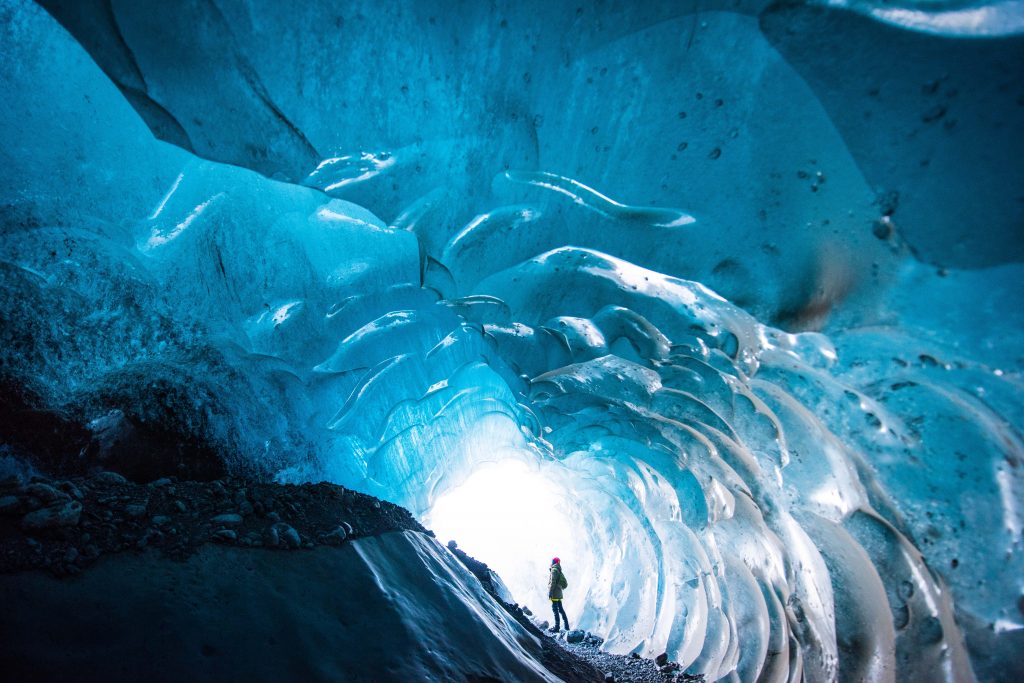
Iceland makes difficult choices early on
Difficult decisions were made very early on; restricting many business' operations, closing the borders, enforcing strict tracing and quarantine rules, social distancing and maintaining daily press conferences to keep the public informed. Widespread testing also allowed the government to track any new cases quickly and isolate those testing positive, as well as those in recent contact. These decisive actions meant Iceland gained a foothold over the virus early on, and the number of new cases dropped rapidly. In fact, Iceland's numbers peaked on the 24th of March with 106 new daily cases. By the 24th of April, that number was at 1.
"Around 15% of the entire country is designated as a UNESCO World Heritage Site"
Since then there have only been a handful of cases reported which has allowed Iceland to reduce restrictions. Social distancing is no longer mandatory, though still encouraged. Public gatherings are now set at 500 people. All local businesses, swimming pools, bars, clubs, schools and public services are up and running again. And now, the borders are finally reopening, albeit with testing on arrival. Effectively, when you step foot in Iceland you can enjoy the country the way it is intended - unrestricted and empty.
The borders are open
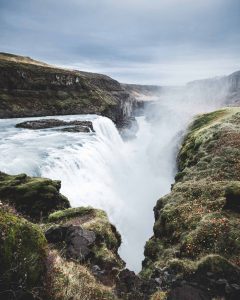
So, the feeling of relief that this day has given myself and the other owners, Dagný Björg Stefánsdóttir and Scott Drummond, is something that can't be expressed in words. Today (15th of June), the borders are reopening, initially to countries within the EU & Shengen, and then to the rest of the world on the 1st of July. 8 Airlines have already committed to flying to Iceland this summer from various destinations. And yet, it is with trepidation and caution that we start to run tours again. Don't get me wrong, our guides are desperate to take new guests back out on the road. But, is it now safe to resume? After all, the virus hasn't magically disappeared in the rest of the world. Not even close. We personally believe now is the time to start the 'new normal' - as long as border controls are maintained the way they say they will be. So what does that really mean?
The restrictions
Sure, Iceland has only had a handful of cases since the beginning of May. But the rest of the world is a very different story. That means we need to be extra vigilant. I would personally hate the idea that one of our tours to the Golden Circle or the Glacier Lagoon becomes the reason for a new spike in cases. That's why we've been following the news very carefully to understand what 'border opening' really means. To get the full details of border requirements you can check out the Icelandic government website.
In summary, every person born after before 2005 will be tested on arrival. This process is expected to take 1 hour and you can continue your transit to your hotel while you wait for your results. Results are expected the same day or the next day at the latest. If you choose not to be tested, or if you test positive, you will need to be quarantined for 2 weeks in Iceland. This can either be at your place of residence or a designated hotel provided by the Icelandic authorities free of charge. If you are from non-high-risk countries (currently only Greenland and Faroe Islands) then you are exempt. Testing will be free until the 1st of July and then cost around $115 per person. You will also be expected to register details of your travel and download the Iceland tracing app. With all these restrictions in place we are confident that running tours again can be done safely.
"Iceland has once again been crowned the most Peaceful country in the world. A title it has held since 2008."
What about when I go back home?
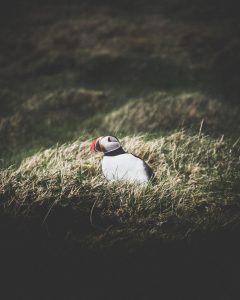
Sadly, the safety that can be felt on a remote island like Iceland may not be as easily replicated when you return home. Many of our future customers are rightly galvanised by how Iceland is handling the situation and are hurriedly booking flights and tours. But before booking we try to express our utmost concern when appropriate.
For example, does the country you're coming from demand a 2-week quarantine when you return from Iceland? And if so, can you still carry out your job during that time? Will you be visiting loved ones that are vulnerable when you return home? Are you prepared to stay in Iceland for 2 weeks if you test positive on the border? Iceland is providing accommodation free of charge during that time if you don't have the resources to self-isolate effectively. But, with a likely delay in going home and being stuck inside for 2 weeks in a foreign country it could well be the difference between choosing to take the risk of travelling in 2020, or maybe waiting until later in the year, or even until 2021.
We can't say for certain how the rest of the world will progress in the coming weeks and months. But what we can say is that Iceland, for now, is safe and ready for travellers when you deem it is the right time for you.
Now for the good news!
What has changed in Iceland?
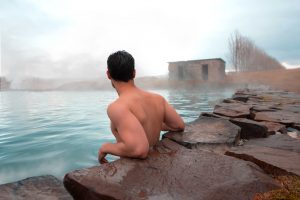
Let's start with the financial aspect. It's no secret that Iceland is expensive compared to somewhere like Spain or Italy. But with COVID-19 affecting the exchange rate quite dramatically for the past few months it's never been cheaper to convert from EUR, GBP or USD. Many hotels, excited to welcome guests again, are providing reduced hotel rates at a time when it would normally be peak season in Iceland. Places like the Blue Lagoon are cheaper too, for now. Our little company, eager to get exploring, are offering a 30% discount on scheduled tours and working closely with suppliers when planning out private tours. Even the airfares, if booked far enough in advance, seem to be quite favourable now.
"many people in the tourism sector in Iceland expect there to only be around 10-20% of normal tourist numbers for the remainder of 2020"
Don't get me wrong, Iceland is still an expensive proposition. However, if this is going to be the one and only holiday you take in 2020, maybe it's worth it. Because one of the biggest things the media discussed in regard to Iceland over the past 10 years is Iceland's meteoric rise in popularity. This gave rise to the erroneous rhetoric that Iceland was overcrowded. I always argued that it wasn't the case. Now I don't need to argue. It's positively empty!
Domestic tourism isn't an issue in Iceland
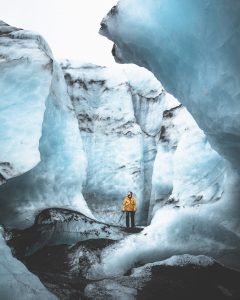
We've all seen the photos of English beaches being flooded with anxious locals trying to get a small piece of their summer back. Or Americans picking local spots for hikes and inadvertently causing a bottleneck effect in their own country. Thankfully, this isn't the case in Iceland. Why? Well, you will have to trust me when I say the locals in Iceland are doing the exact same thing. They can't go on holiday abroad either and they are enjoying Iceland as much as foreign travellers would. So why is domestic tourism in Iceland not a problem for crowds like the rest of the world?
Well firstly, there aren't that many Icelanders in total. In fact, Iceland holds a tiny population of around 350,000 people and a low population density. But also, the popular spots for an Icelander are often very different from those of a first time tourist. After all, there's only so many times you can watch the world-famous erupting geyser of Strokkur or walk along the shimmering Reynisfjara Black Sand Beach before you opt to go a little further into the countryside.
"The overwhelming feeling is that Iceland won't see 2018/19 tourist levels until 2024 at the earliest."
Secondly, Iceland is far, far bigger than people think. Almost the same size as England in fact, but with a tiny fraction of the population. So when you compare the 65 million people who squeeze onto England's yellow sand beaches or the 80 million French people looking for their own secluded spot, it's clear that there is no comparison at all.
And thirdly, with a low population density and most of the industry situated around fishing ports and Reykjavik you have a country that is mostly unspoiled i.e. raw, empty nature. Around 15% of the entire country is designated as a UNESCO World Heritage Site with much more land protected locally as National Parks and Nature Reserves. It's apparent that Icelanders care deeply about their country and have taken steps to protect the most beautiful places. For example, the Gullfoss waterfall in the Golden Circle is often referred to as a mini Niagara Falls due to the sheer amount of water cascading off its 100ft cliff edge. However, this impressive attraction almost disappeared in the last century due to developers trying to harness the power from the water to create a hydro dam upstream. Thanks to the campaigning and determination of the locals this beautiful area has been protected ever since. A trend that continues to this day for many places around the country.
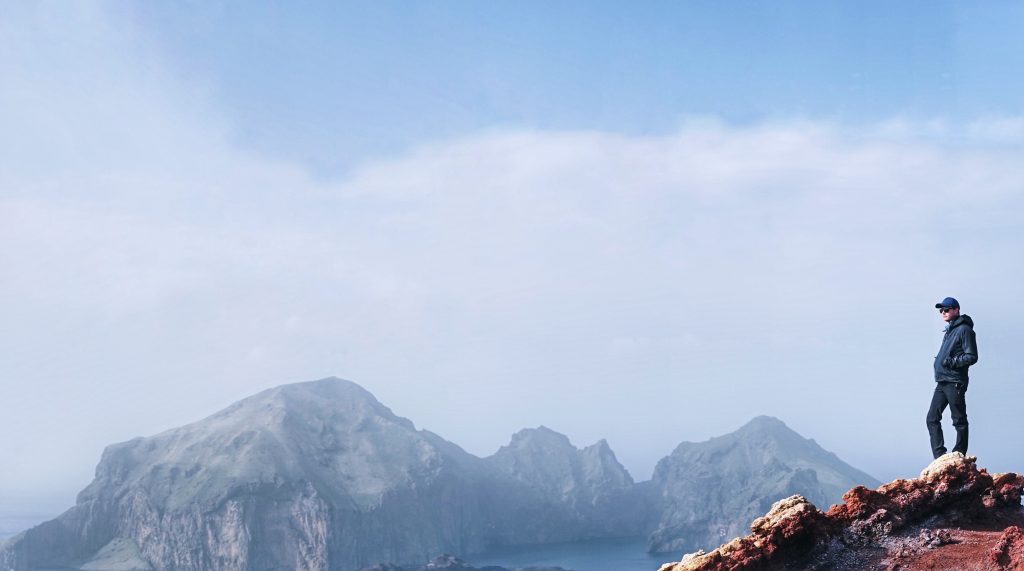
Iceland was never crowded
Before I finish I'd just like to take pause and revel in the fact that I'm finally writing a piece that's mostly positive. The coronavirus has not gone and there is still a lot of work to go. But, I can finally say that I see light at the end of the tunnel. Maybe the road isn't a straight line, only time will tell. But at least we're moving in the right direction now.
Now for the big change that has occurred in Iceland due to COVID-19 - tourist numbers!
"Iceland's raw and untouched nature will remain unspoiled until the time is right to see it for yourself."
In 2019 Iceland welcomed around 2 million tourists to its shores. That was slightly down from 2.3 million in 2018. However, when you compare it to the years prior to 2010 where the average was around 400,000 you can see why some began to consider Iceland to be overcrowded. The growth of tourism was phenomenal, though worrying. The media latched on to the rhetoric that Iceland was well and truly 'discovered'. To be honest, even I felt this same feeling at certain times of the year when stepping off the plane in Keflavik airport and venturing through the small streets of Reykjavik. However, that feeling quickly dissipates when you get away from the bottleneck effect of the capital. The city is small and the tourist attractions are squeezed into an even tinier sub-section of the capital. The few people that return home with the 'crowd' complaint likely never joined a Hidden Iceland ice cave tour taking you away from it all, to the hidden gems of the country. So before we talk about anticipated numbers for 2020 and 2021 I'd just like to make one comparison. Iceland had 2 million tourists in 2019 in an area almost the size of England - Venice had around 20 million tourists in 2019 in a far smaller area. Enough said
Are the locals expecting a surge of tourists once the borders open?
The short answer is no. The world is wary of international travel right now, and rightly so. The few people still keen to take the risk and travel in 2020, because that's what it is - a risk, may choose Iceland. After all, Iceland has once again been crowned the most Peaceful country in the world. A title it has held since 2008. If you're going to take a risk and travel then maybe Iceland is the right place to take that risk. However, the number of people making that choice will be drastically down from last year. Additionally, even if the entire world chose to jump on a plane and come to Iceland it still wouldn't cause a surge. For two reasons. Firstly, there are only 8 airlines now flying to Iceland, down from 20 in 2019 and in a greatly diminished capacity too. And secondly, everyone is being tested on arrival with a current maximum number of 1000 per day, further limiting arrivals.
So quick math will tell you that as it stands, Iceland will only physically be able to serve 365,000 tourists per year until testing and international travel rises. In effect, we're back to pre-2010 numbers even if every seat is taken every day.
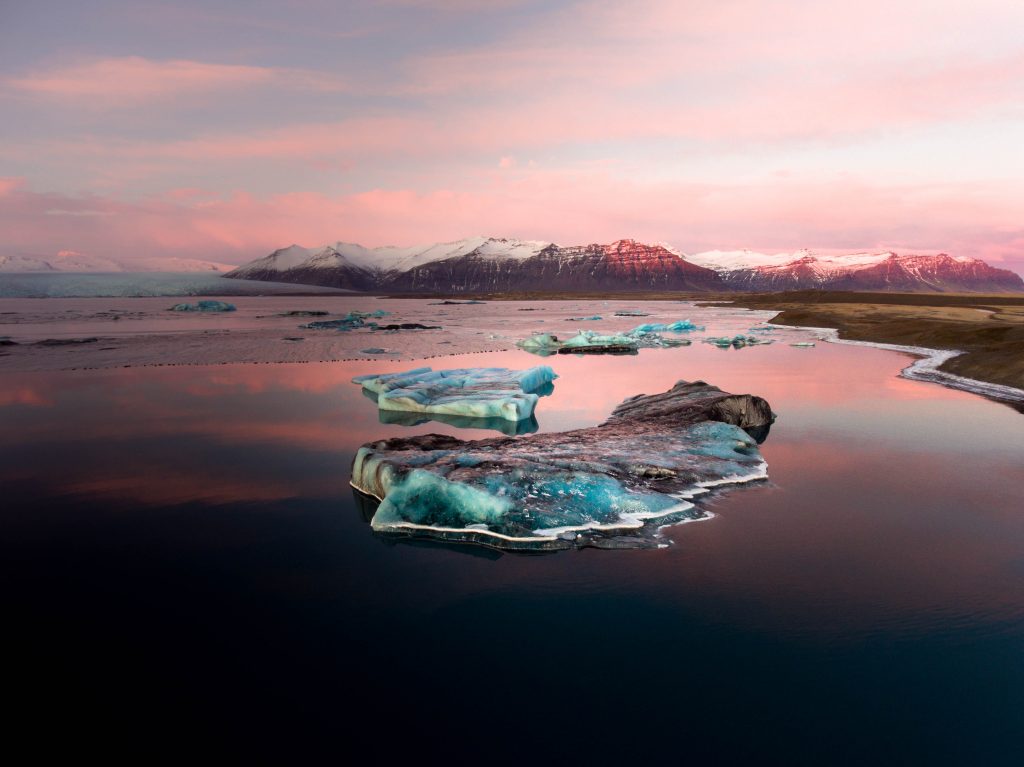
Iceland is empty
As we develop an understanding of the concept of a 'new normal' many believe that domestic tourism will rise, international tourism will fall and mass tourism will take on a new form. People will travel again, COVID-19 be damned. But overall travel will go down. I suspect people will be more selective about their holiday choices each year and be more excited to get their money's worth. This has meant, regardless of flight and testing numbers, many people in the tourism sector in Iceland expect there to only be around 10-20% of normal tourist numbers for the remainder of 2020 and a maximum of 40% in 2021. 2022 is too far away to speculate as vaccines and second waves will undoubtedly play a big part in prediction models. But, the overwhelming feeling is that Iceland won't see 2018/19 tourist levels until 2024 at the earliest.
Iceland is ready when you are
In closing, if after all of the above has been deliberated and the risks have been weighed and you still feel like Iceland is a good place to travel to in 2020, or 2021, then we'll be ready for you. The most peaceful country in the world will continue, business as usual, until the time is right for the rest of the world to visit again. After all, the migrating puffins are just as cute as they flutter around Iceland's sea cliffs, even if no one is around to see them. The breaching whales that mate off-shore are just as majestic as they glisten under the midnight sun. The Northern Lights don't care if you are there to splendour at their fleeting beauty. And an undiscovered ice cave is still as blue as ever whether or not it makes it onto Instagram this year.
Along with the ever-present respect shown to Iceland's outdoors, you can rest assured that Iceland's other-worldly nature will remain unspoiled until the time is right to see it for yourself.
I hope to see you there when the time is right!
Ryan Connolly is the co-founder of Hidden Iceland. A small family-friendly travel company that employs expert guides to take private and small group tours to the more secluded parts of the country while allowing you to see the popular spots along the way. Ryan has talked about many aspects of his adopted homeland in recent years, including the effects of climate change on the ever-changing glacier areas of the country. Click here to read his first-hand account of hiking glaciers in Iceland.
